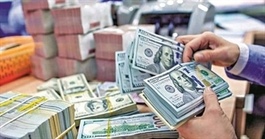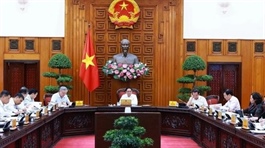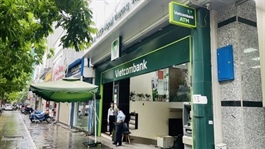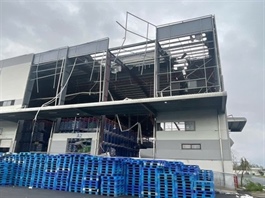Assessing Vietnam’s investment appeal through expert eyes
Assessing Vietnam’s investment appeal through expert eyes
Jimmy Koh, head of network partnerships and strategic marketing, foreign direct investment advisory at UOB, delves into Vietnam's appeal to foreign investments, how UOB supports foreign direct investment (FDI) business expansion and go-green efforts, and the country's FDI prospects for the rest of 2024.

How do you assess Vietnam’s appeal to the foreign business community?
The global supply chain is undergoing significant changes, much of which is influenced by geopolitical factors, particularly the tension between China and the West. This has led to a major restructuring of global supply chains, with many companies now shifting operations to Southeast Asia.
Vietnam has become a particularly interesting destination. The concept of ASEAN as a manufacturing hub isn’t new as we saw this in the 1990s and early 2000s, before China joined the World Trade Organization (WTO).
Back then, Vietnam wasn’t a major player in the region. However, as companies now return to Southeast Asia, Vietnam stands out due to its large labour force, growing market, and rising middle class, which are attracting significant FDI capital flow.
Looking ahead, as long as the global supply chain continues to diversify, Vietnam will remain a key destination to foreign investors. From 2015 to 2023, global FDI dropped by around 35 per cent, but during that same period, FDI into ASEAN soared 90 per cent, clearly highlighting the region's growing importance, and Vietnam will continue to be a part of this shift.
Which sectors are attracting the most attention from foreign investors?
This is mostly driven by the need to diversify supply chains. Products previously manufactured in China are now moving elsewhere, with Vietnam becoming a key location.
We are seeing interest in industries such as industrial manufacturing, consumer goods, and mid-level electronics assembly. While the focus isn’t on high-end technology, these sectors still involve a significant amount of added value through assembly processes.
Tech companies that initially set up in Ho Chi Minh City are now expanding into Hanoi, partly due to its proximity to China. This expansion is creating new opportunities, and the growing number of industrial parks in Vietnam reflects the increasing interest and growth in these sectors.
What distinct advantages does Vietnam have to enticing interest from foreign investors compared to its regional peers?
The next five years are critical for Vietnam. As global supply chains continue to be restructured, every country in the region will be competing to attract foreign investment. This period will likely determine the new equilibrium in terms of FDI.
Vietnam has several advantages, particularly in sectors like electronics, consumer goods, and textiles. When people think of textiles from Vietnam, they associate it with quality. Vietnam is also gradually moving into mid-level electronics manufacturing, which is something the country can handle well. Each ASEAN country has its own role, and Vietnam’s strengths set it apart from countries like Thailand, Malaysia, and Indonesia.
That said, there's plenty of opportunity in ASEAN, and I believe there's enough market share for the whole region to benefit from FDI.
What measures is UOB implementing to help foreign investors expand their businesses in Vietnam?
When companies enter a new market, their first need isn’t banking services, but rather building relationships with government agencies. One of the key things we do at UOB is facilitating connections between companies and relevant government bodies. This helps businesses understand which strategic industries qualify for tax incentives.
UOB also assists in connecting businesses with local supply chains, navigating the regulatory landscape, and establishing partnerships with trade associations, human resources firms, legal firms, and accounting firms.
Through this holistic approach, UOB provides end-to-end support for corporates, from initial setup to full-scale operations, ensuring that they are well-positioned to succeed in Vietnam.
Vietnam is performing strongly in the green sector, such as promoting renewables and the green economy as the country aims to reach net zero by 2015. What initiatives or financial solution has UOB introduced to support business in going green in Vietnam?
The journey towards sustainability is a gradual one. At UOB, we advocate for a ‘just transition’, recognising that businesses can’t become entirely green overnight. Our role is to help them gradually shift towards sustainability.
For instance, we work with factories to install solar panels, which is increasingly driven by demand from large Western consumer firms.
We assist our clients throughout this transition, providing the tools and guidance they need to move towards a greener future.
What is your forecast for FDI attraction in Vietnam for the rest of 2024?
Last year, FDI numbers were somewhat muted, partly due to the global economic slowdown. Investment into ASEAN and Vietnam, however, has remained resilient. While I don’t foresee a dramatic rise in FDI due to the continued uncertainty and challenges in the global economy, Vietnam and ASEAN will continue to be attractive destinations for investors.
We have seen interest from German, Japanese, Taiwanese, and Korean companies, indicating that it's no longer just Chinese corporates enter the market. This diversification of investors reinforces Vietnam’s position as a key player in the global FDI landscape.




























